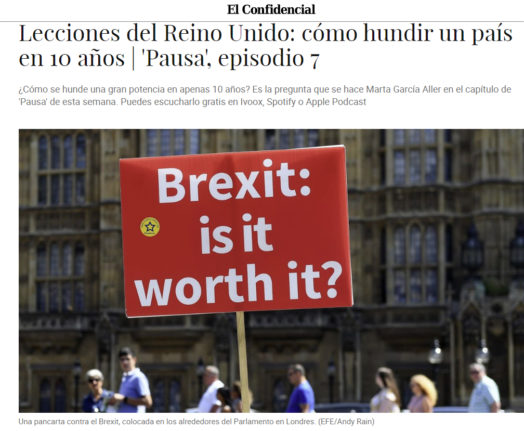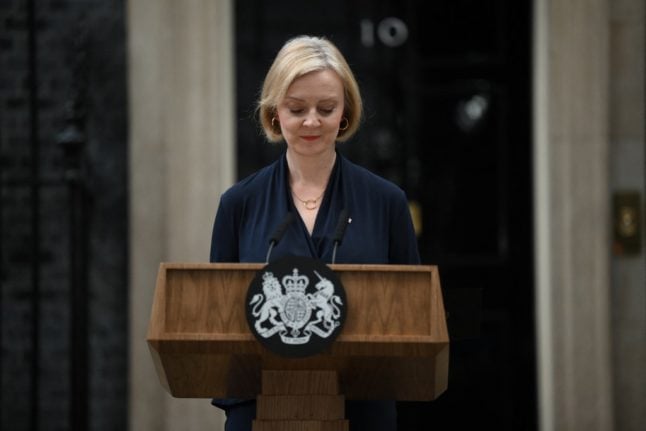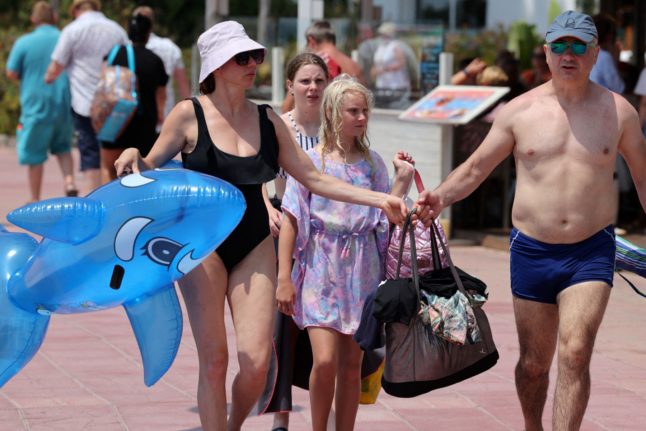Following Liz Truss’s resignation outside Downing St on October 20th, British politics has been thrown into a level of political crisis not seen since the week before. It was then that her closest political ally and ‘ideological soulmate’, former Chancellor Kwasi Kwarteng, was forced to resign.
But things got worse, the crises kept coming, and Truss’ resignation comes after disastrous economic reforms spooked the international markets, caused the pound to plummet in value, and sparked a series of resignations.
Her 44 days in office make her the short serving Prime Minister in British history, the second being Conservative George Canning, who was Prime Minister for 118 full days in 1827 before dying in office.
In what was once perceived to be a mature, stable, secure political culture, Britain has now had four Prime Ministers in six years and experienced little else besides political turbulence since the Brexit referendum – the UK’s international reputation has, since that day, been declining bit by bit.
So, what does Spain make of it all? And what are the Spanish press saying as British politics stoops to yet another low?
The view from Spain
Even before the recent sackings and resignations by Britain’s two most senior politicians, Spanish Prime Minister Pedro Sánchez had already pointed to the UK as an example of ‘how not to run a country.’
Speaking in the Spanish Congress earlier in October, Sánchez took out a copy of The Economist with Liz Truss and Kwasi Kwarteng on the cover and said, “That is what they are doing in the UK. Talk to your friends and fellow conservatives and ask them how not to run a country.”
En dos años hemos recuperado los niveles de empleo previos a la pandemia.
Con la respuesta neoliberal que se dio a la crisis financiera con recortes al Estado del Bienestar, se tardó 10 años en recuperarlos
Lo antiguo es bajar los impuestos a los ricos. pic.twitter.com/3KaVwhIRHI
— Pedro Sánchez (@sanchezcastejon) October 5, 2022
Sánchez, it seems, had some foresight. In fact, Truss was in Downing Street for such little time that she never even met Sánchez in their capacities as Prime Ministers.
The Spanish PM is yet to comment publicly on Truss’s resignation, nor have any of the other leaders of Spain’s main political parties given their views on this latest debacle.
Newspapers
How have the Spanish press reacted to the turbulence of British politics? Well, they haven’t pulled any punches.
Upon the news of Truss’ resignation after just 45 days in office, El Diario went with the headline: “In the end, the lettuce won: the vegetable celebrates lasting longer than Lis Truss,” in reference to British paper The Daily Star’s online stream of a lettuce, suggesting that it would outlast the former-Prime Minister.
In the end, it did.
El Independiente was more to the point, simply saying: “Chaos in the United Kingdom.”
El Mundo went with: “Six weeks in power of Liz ‘the brief’”. Público ran with “Post-Brexit Britain: Calamitous country”.
La Sexta picked up on the sheer turbulence of British politicians in recent days, describing how the Prime Minister’s “resignation comes just one day after Truss assured that she was not going to resign”. “Is it truly possible that they’re considering bringing back Boris Johnson?” asked incredulously Cristina Pardo, presenter of La Sexta’s Mas Vale Tarde news debate.
ABC’s headline was equally to the point: “This is Liz Truss, the former British Prime Minister who aggravated the political crisis in the United Kingdom.”
“Her long political career,” the article goes on to say, “ends after a 45-day mandate marked by mistakes and instability.”
But even before Truss’ resignation, the Spanish press had picked up on her vulnerability. Spain’s main radio network Cadena Ser reported on the morning of her resignation that: “The UK, mired in chaos, has the worst prime minister.”
It went on to say that the “British are experiencing a chaotic situation and Liz Truss does not know how to manage the mess.”
El Economista highlighted how “Truss’s fall is dashing the dreams of turning the UK into a ‘European Singapore'”.

Brexit
Negative coverage of British politics is nothing new in the Spanish press, however. With the political instability unleashed by the Brexit vote, Spanish journalists have not held back in voicing their opinions on what was once predicted to be a steady, sensible political culture.
In June of 22, La Voz de Galicia ran an op-ed with the headline: “Everyone loses with “Brexit”, but above all the United Kingdom and the citizens.”
In May, El Diario decided that the problem underlying the political decline of Britain was clear: “The British government’s problem is that Brexit does not work.”
And unlike in Britain, where Euroscepticism is a more mainstream position, in the aftermath of the referendum El Diario highlighted how it could be viewed as something more extreme: “The European extreme right celebrates the Brexit victory as its own.”



 Please whitelist us to continue reading.
Please whitelist us to continue reading.
Member comments